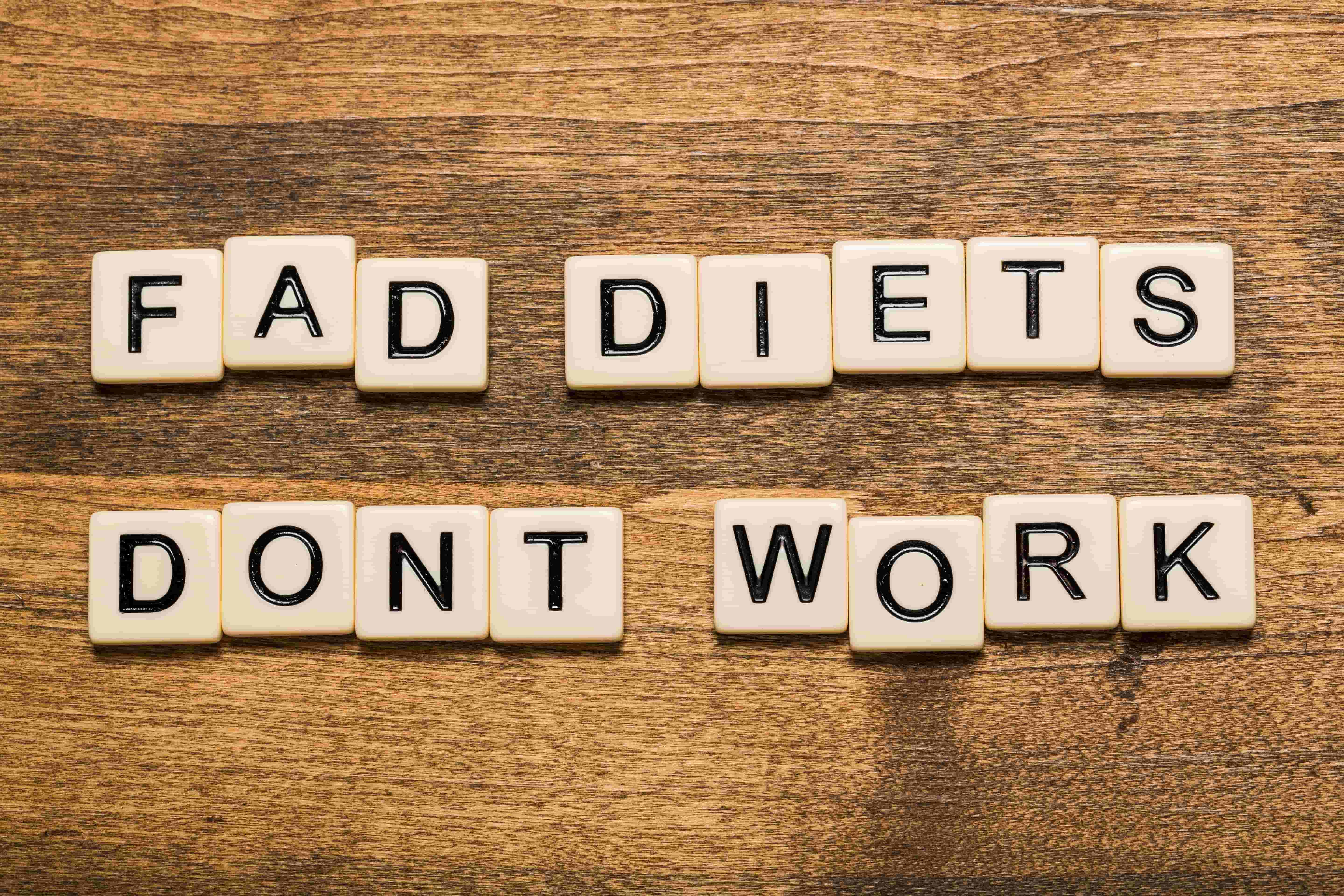Ditch the Diet Fads: Learn Why Most People Gain All The Weight They Lost
Today’s society is all about instant gratification. It’s one of the negative effects of technology; and often for weight loss, most people also turn to the quick fixes that give immediate results. The latest diet fads frequently boast about these fast and quick results. They claim to help you lose ten pounds in only two weeks or finally get the slim and toned body you’ve always wanted in less than six weeks. The only problem? Most people don’t keep the weight off that they lost. It happens all the time.
You lose the weight, you go off the diet, and you put it all back on again - and then some. It turns into a vicious cycle of yo-yo dieting with your health thrown to the roadside. So, why does this happen, and how can you stop it?
The Vicious Cycle of Diet Fads
Diet trends come and go, and they aren’t always accurate or true, nor are they always based on scientific evidence of any sort. Surprisingly, most individuals that go on a diet regain one-third to two-thirds of the weight lost back within a year, with 100% of the weight typically returning within five years. The same scientific review further states that one-third of these individuals will regain more weight than they had previously [1].
Many of these diet fads, such as Weight Watchers or shake diets, are based on food restriction. Research shows that caloric restrictions lower your resting metabolic rate [2]. This means your body doesn’t burn as many calories at rest. It also means that, although you might not be eating an increased amount of food, your body stores any excess energy as fat. The more times you do this process of restriction and then stop, the more you are slowing down your metabolism.
You also may be causing various dysregulations through these restrictive diets. Since your body isn’t getting the energy it needs, it may divert energy to the essential processes. This may mean that you experience mood swings, disrupted sleep and other health issues. However, this doesn’t mean you need to live a life of continuous restricted dieting. No doctor or expert would recommend that. Below, we explore how you can lose weight and maintain that weight loss - no restricted diet fads necessary!
The Healthy Way to Lose Weight (And Maintain It)
When individuals go on a weight loss journey, most people find various evidence and claims indicating that reducing your calories is the only way to shed pounds. While healthy portion sizes are important, this isn’t the end-all, be-all to healthy and sustainable weight loss. Not all calories are created equal [3]. Different ratios of macronutrients impact your weight loss and its sustainability almost just as much.

Many people find it challenging to stick to their restrictive diet, so they binge eat. They might eat a whole bag of chips or multiple bowls of ice cream as they try to quench their cravings. Often, these cravings happen from nutrient deficiencies and imbalances. This is where macronutrient amounts come into play. Your dietary macronutrient intake can influence your caloric intake, helping you lose weight and sustain it. For instance, one study showed that increased protein intake increased feelings of fullness and improved appetite control in 27 overweight and obese men [4].
The majority of individuals in the United States exceed the recommended amounts of calories from fats and added sugars [5]. Ultimately, this indicates that most individuals, especially looking to lose and sustain weight, need to strive for a more healthy and balanced diet. Unfortunately, this isn’t a quick fix to weight loss, but it is the best route toward sustainable weight loss and long-term health. Healthy weight loss takes time. Your body needs this time to adjust. Usually, your body is trying to maintain balance - including your weight. When you experience sudden and drastic weight loss (via a diet trend), your body isn’t prepared to maintain it. It’s still stuck trying to maintain the previous weight that you had before your rapid weight loss diet, which is also why you put all the weight back on again. In other words, slow and steady wins the race!
The Bottomline
Ditch the diet fads and diet trends for good this time. They aren’t in favor of you or your health. Instead, strive to lose or maintain weight through healthy practices, such as a balanced macronutrient intake and proper portion sizes. Adopting healthy habits is the best way to lose weight, and it will take you down a road toward better and life-long health and wellness.
Finding a healthy diet that works for you in the long-term is extremely important. One way to boost that diet is by incorporating an infrared sauna into your daily health routine. When used in conjunction with exercise and healthy meals, infrared saunas can help you feel absolutely amazing; not to mention all the amazing health benefits they have on their own. Buy one today and experience the JNH lifestyle!

Resources:
[1] Dulloo, A.G., & Montani, J.P. (2015). “Pathways from dieting to weight regain, to obesity and to the metabolic syndrome: an overview.” ncbi.nlm.nih.gov, Obes Rev, February 2015, https://www.ncbi.nlm.nih.gov/pubmed/25614198.
[2] Redman, L. M., & Ravussin, E. (2011). “Caloric restriction in humans: impact on physiological, psychological, and behavioral outcomes.” ncbi.nlm.nih.gov, Antioxidants & Redox Signaling, 15 January 2011, https://www.ncbi.nlm.nih.gov/pmc/articles/PMC3014770/.
[3] Hall, K. D., & Kahan, S. (2018). “Maintenance of Lost Weight and Long-Term Management of Obesity.” ncbi.nlm.nih.gov, The Medical clinics of North America, January 2018, https://www.ncbi.nlm.nih.gov/pmc/articles/PMC5764193/.
[4] Campbell, W.W., Leidy, H.J., et al. (2011). “The effects of consuming frequent, higher protein meals on appetite and satiety during weight loss in overweight/obese men.” ncbi.nlm.nih.gov, Obesity (Silver Spring), April 2011, https://www.ncbi.nlm.nih.gov/pubmed/20847729.
[5] U.S. Department of Health & Human Services. (2017). “Facts & Statistics.” hhs.gov, 26 January 2017, https://www.hhs.gov/fitness/resource-center/facts-and-statistics/index.html.

